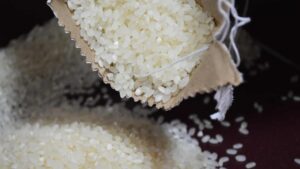To streamline the breeding of five staple crops – wheat, rice, maize, sorghum and chickpea – the Bill & Melinda Gates Foundation has awarded Cornell University $18.5 million for a project that will put modular, open-source breeding software resources into the hands of plant breeders in the developing world.
“This is a significant moment in the history of breeding, with genomes making their way into the heart of applied plant improvement,” says Susan McCouch, professor of plant breeding and genetics and the project’s principal investigator. “We can finally use genomewide approaches to model plant performance in real time using tools that are shared across diverse species and regions of the world.”
The Genomic and Open-source Breeding Informatics Initiative (GOBII) takes aim at a hurdle created by the era of genomics: big data. According to McCouch, millions of data points are being accumulated on hundreds of thousands of new breeding lines – the basis for new varieties – in breeding programs run by CGIAR, a consortium of 15 research centers around the world. The centers are populating databases with genetic profiles – the genotypes – as well as breeders’ observations on traits – or phenotypes – that will make or break harvests in the coming century. The databases will include information about drought tolerance, disease resistance and yield.
More information is available at: http://www.news.cornell.edu/stories/2015/04/185m-grant-aims-boost-staple-crop-breeding-worldwide












